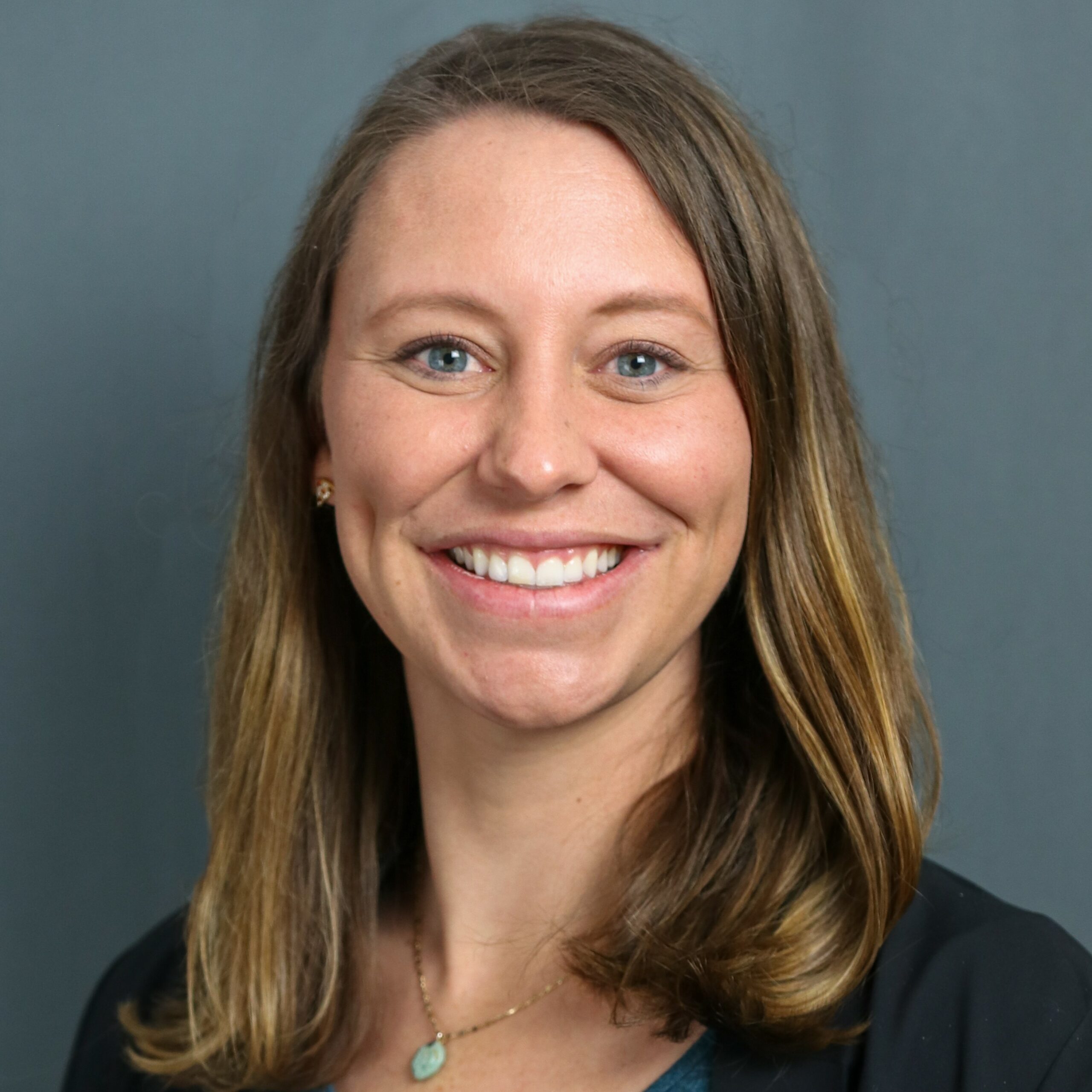Behind the Coat – – Samantha Averill, MD

Behind the Coat – Samantha Averill, MD
Breathe easy: May is Asthma Awareness Month. In this edition of Behind the Coat, we speak with Dr. Samantha Averill, a pediatric pulmonologist at Riley Children’s Hospital, about her work studying asthma and treating young patients with this chronic but treatable condition. Read on to learn how she’s helping keep Indiana’s airways clear.
Please introduce yourself:
I’m Samantha Averill, MD. I work at Riley Children’s Hospital and I am a pediatric pulmonologist. I see patients in the hospital and in the clinic. I also participate in translational and clinical research projects.
What is the best part about doing research in Indiana?
The best part about doing research in Indiana is feeling supported by great people to help great people.
What sparked your interest in asthma research, both personally and professionally?
Personally, I love the continuity and growth that I see in patients in clinic. While I see many success stories in asthma clinic, there are still patients that struggle to gain control of their asthma, even when they are doing all the right things. This can be frustrating. Asthma is common and yet can be unique to each patient. This sparks a lot of great research questions.
Can you share a bit about your background and how it has influenced your work in asthma research?
I was raised in Northern Kentucky. I completed my undergraduate studies at University of Kentucky (sorry, Hoosier fans!) and my medical school training at University of Louisville. I moved to Indianapolis to complete my pediatric residency and met the members of the pulmonary team during my training. I found the asthma specialists at Riley so inspiring.
How do you balance your personal life with the demands of being a researcher?
I think being a researcher means you have to have a good professional team and a good team for your personal life. I am blessed to have a partner who can work with me to pick up our daughter from daycare on day I am late in the lab or need to go to a research meeting. There are days when my schedule is rigid, but there are many days where I can create my schedule to allow more time for my family. You take the good days with the bad.
What are some of your hobbies or interests outside of your work in asthma research?
Outside of asthma research I love to spend time with my family. My husband, Blake, and I will take our daughter, Evelyn, to explore the different parks around Indianapolis or walk along the Monon Trail. I am part of a great trivia team and we participate in tournaments a couple times a year. I like to go to Orange Theory classes.
Have you faced any personal challenges that have shaped your approach to studying asthma?
When I was a child my dad was diagnosed with ALS. With the help of friends and family, he raised money to fund ALS research and support patients living with disease. During his illness, he also participated in clinical trials. The hope and strength the research community provided my family during those times has never truly left me. I chose to make research a part of my healthcare career with hopes that I can provide that same hope and strength to people living with asthma.
What advice would you give to aspiring researchers interested in studying asthma or similar fields?
I would encourage new asthma researchers to stick with it! We are learning new things about asthma everyday, and there are many unexplored questions and pathways to dig into. It may take time to find the pathway you are most passionate about but don’t be discouraged. Every research project, no matter how big or small, has something different to teach you about the process and about yourself.
See some of Dr. Averill’s work:
